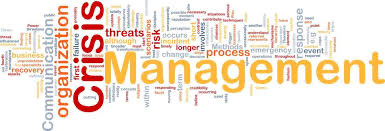Leveraging data for enhanced services is not a luxury but a need for senior executives in this data-driven world. The capabilities of organizations in data analysis and use can revolutionize interactions with and services to citizens. To guarantee that citizens have not just good but outstanding experiences, this blog explores how leaders may use data to improve service delivery.
Understanding the Data Landscape
Gaining familiarity with the varied data landscape is the initial stage of using data. There are many kinds of data, including numerical data stored in conventional databases and more free-form information found in emails, films, and social media interactions. The difficulty for leaders comes from amassing such a mountain of data and figuring out how to make sense of it all. Purchasing analytics tools and data management systems that can handle data processing and analysis efficiently is part of it.
Decision Making Based on Data
The idea of data-driven decision-making is fundamental to data leveraging. Instead of relying solely on gut feelings or casual observation, this method emphasizes the need to analyze and interpret data. For instance, government officials can find ways to enhance public services by studying user reviews and trends in service consumption. In addition to improving decision-making accuracy, this strategy offers a framework for public service administration that is both measurable and responsible.
Improving Interactions Between Citizens
By analyzing data, services can be customized to cater to the unique requirements of various citizen groups. One way to tailor services to certain age groups, ethnic groups, or geographic areas is to analyze demographic data. Not only does this degree of personalization make life easier for citizens, but it also encourages participation and belonging. It shows that the government cares about its citizens’ individual problems.
Analytics for Predictive Service Delivery
The use of predictive analytics has revolutionized the way services are provided. Governments can plan ahead for citizen demands by studying patterns and trends. Public transit, hospitals, and schools can all be better distributed using predictive analytics in urban planning, which considers patterns of urban migration and population increase.
Difficulties and Moral Issues
However, there are difficulties and ethical problems associated with data leveraging. Cyberattacks frequently target public sector firms, making data protection a top priority. It is a public trust and a legal requirement to protect citizens’ personal information. Furthermore, ethical standards are required to prevent data analysis biases and guarantee that data-driven choices do not unfairly target any demographic of citizens.
To summarize, senior executive executives who want to enhance citizen experiences must utilize data for improved services. Successfully navigating this data landscape necessitates familiarity with data-driven decision-making, more public engagement, predictive analytics, and careful attention to ethical implications.
Government officials have the opportunity to improve the delivery of public services by utilizing data in a way that is more responsive, efficient, and personalized to the needs of the people. In addition to improving people’s lives, this change paves the way for a more responsible and innovative government in the future.




Leave a Reply